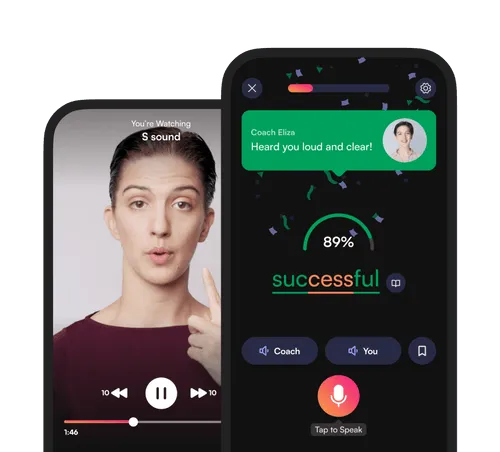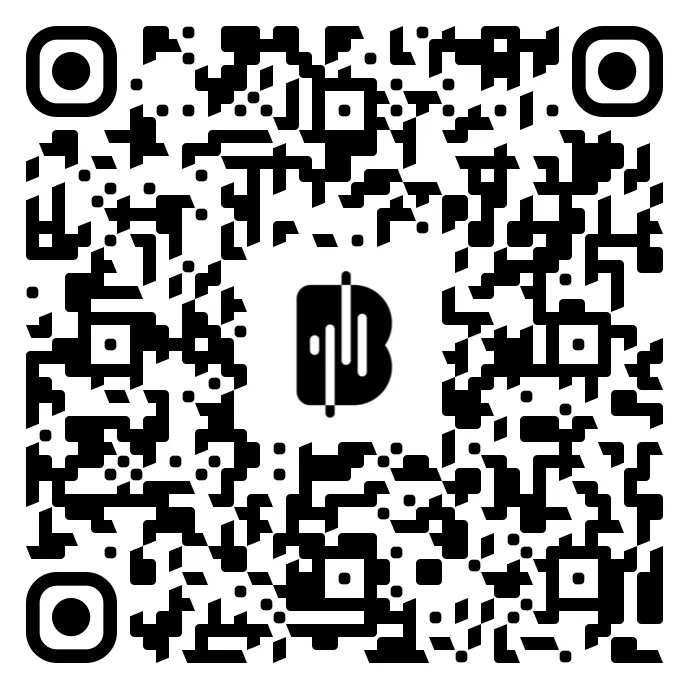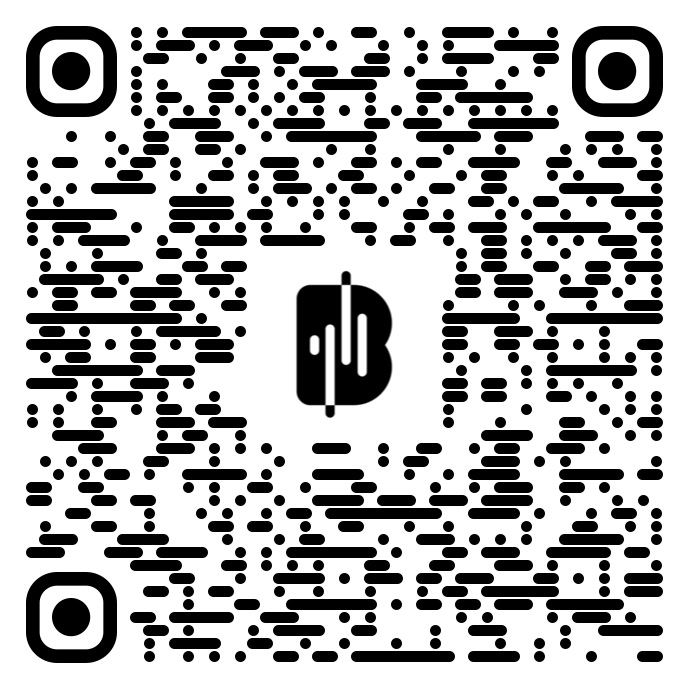When it comes to speaking English, every word plays a vital role, no matter how inconsequential it may seem.
In a previous blog, we've outlined the main pronunciation challenges for Chinese speakers learning English in a comprehensive guide . In this article, we explore 25 English words that are hard to pronounce for Chinese speakers and tips to say these words clearly.
Let's get started!
1. Through: /θɹu/ Through is an English word that can be particularly different for native Chinese speakers because of the unvoiced "th" sound, which doesn't exist in Mandarin or many other Chinese dialects.
The trick with the unvoiced "th" sound is to make sure the tip of the tongue is positioned in between the top and bottom teeth, as demonstrated by BoldVoice coach Eliza Simpson below.
VIDEO
2. Post: /poʊst/ This word usually refers to a job or position to which someone is appointed. The ideal English pronunciation involves a long "OH" sound, which Chinese learners often substitute for “AW”. Therefore, the sound comes out as "pawst" when they say the word.
Pronouncing this word entails rounding your lips slightly, relaxing your tongue, and voicing the "OH" sound.
3. Rural: /rʊərəl/ We call areas outside urban or suburban areas rural. This word may be difficult for Chinese speakers because they lack the American "R" sound in their language.
The American "R" sound forms by lightly tapping the tip of your tongue against the roof of your mouth behind your front teeth. Allow a steady stream of air to pass the sides of your tongue without rolling it.
4. Rush: /rʌʃ/ Rush simply means moving quickly. Chinese people may pronounce this word, however, as lush. The challenge in achieving this word is again because of the difficulty in pronouncing the English “R” sound.
Take your free accent assessment Get to know your pronunciation level and get 7 days of lessons for free on the BoldVoice app.
Start Free Trial
5. Please: /pliːz/ We use the term "please" to make a polite request. Please is a common word but it is one of the most difficult English words for Chinese speakers learning English. Because of the difference in vowels, it is common for Chinese speakers to say "puh-lease" or "pliz."
Pronouncing this sound requires focus on the long "EE" sound in English. We can achieve the long "EE" by emphasizing the “ease” in the word "please.”
6. London: /lʌndən/
Native Chinese speakers may mispronounce the name of England’s capital city, London, as Law-daw. This is because they often omit final consonants in words.
To overcome this pronunciation error, you must pay attention to and intentionally voice the final consonant sound in London.
7. Although: /ɔːlˈðoʊ/ This word is a conjunction, introducing a subordinate clause that contrasts with the main clause. In English, we stress the initial "AW" sound in although. The "AW" sound is a diphthong that does not exist in Chinese. As a result, Chinese speakers pronounce although as something more similar to “o-th-oh.”
8. Worked: /wɜːrkt/ Worked is the past tense of the verb "work." In English, E-D is a consonant cluster that we pronounce as "KT" in words like worked. This consonant cluster is nonexistent in Chinese languages; hence, Chinese speakers may pronounce "worked" as "workd."
9. Go: /ɡoʊ/ The word "go" signifies movement or an action. This simple word is on our list of difficult English words for Chinese speakers because they sometimes pronounce it as "koh." The challenge with this sound is the lack of a clear distinction between voiced and voiceless consonants in Chinese.
To pronounce the “G” sound like a native English speaker, position your tongue against the soft part at the back of your mouth. Next, release a burst of air by briefly blocking and then releasing the airflow. Finally, make sure your vocal cords vibrate when you say the sound.
VIDEO
10. Fleece: /fliːs/ We call the wooly coat of a sheep or similar animal fleece. We also emphasize the long "EE" sound when we pronounce this word.
Like in the word “please”, the "EE" sound is a diphthong that does not exist in Chinese. Therefore, Chinese speakers sometimes pronounce it as "f-lis."
11. Throne: /θroʊn/ A throne is a ceremonial chair that a ruler uses during official ceremonies. The correct English pronunciation involves the unvoiced "th" sound, followed by the long "OH," and ending with the "N" sound. Chinese languages lack the unvoiced "th" sound, so they replace it with the "S" or "T" sounds.
Remember that for the "th" sound, you'll need to place the tip of your tongue between your upper and lower front teeth, and then allow the air to flow between your tongue and upper front teeth.
12. Goose: /ɡuːs/ This is a large waterbird with a long neck and webbed feet. Chinese speakers may pronounce this word as "goo" because they sometimes neglect final consonant sounds.
The “S” sound is a hissing sound that occurs by allowing air to pass through the small gap between your tongue and upper front teeth. Slightly open your mouth and place the tip of your tongue close to the upper front teeth. Also, keep the middle part of your tongue raised toward the roof of your mouth.
VIDEO
13. Card: /kɑːrd/ A card is a small, rectangular piece of stiff paper. This word appears simple but it is also one of the most difficult English words for Chinese speakers.
Chinese speakers might pronounce it as "kaad," replacing the "AR" diphthong with the shorter "AA" sound. To produce the correct card pronunciation, focus on emphasizing and sustaining the "AR" sound in the word.
14. Thyroid: /ˈθaɪ.rɔɪd/ The thyroid is a butterfly-shaped gland in the neck that produces hormones. Chinese English speakers mistake this sound for "tai-roid" since they lack the unvoiced "th" sound.
15. Queue: /kjuː/ A queue is a line or sequence of people or things. We pronounce "qu" as "kyoo" in English and it's simply a combination of the "k" and "yoo" sounds.
In Chinese, there isn't an exact equivalent for the English "kyoo" pronunciation. As a result, Chinese speakers might pronounce the word "queue" as more like "kew."
16. Bread: /brɛd/ For Chinese speakers, the initial B-R consonant cluster in the word bread might pose a challenge. Hence, you might hear variations like "bed" or "ped" when they use this word. To correctly pronounce "bread," focus on the initial "BR" sound.
Begin by forming the "B" sound by bringing your lips together and releasing them to produce a burst of air. Next, gently place the tip of your tongue between your upper and lower front teeth for the "R".
17. Very: /vɛri/ The word "very" serves as an amplifier, intensifying the degree of an adjective or adverb it accompanies. Chinese speakers might substitute the initial "V" sound with "W," pronouncing it similarly to "wery." This makes the word one of the most difficult English words for Chinese speakers.
To pronounce the “V” sound, place your upper front teeth against your lower lip. Remember to let air flow through the small opening as you voice the sound.
VIDEO
18. Row: /roʊ/ Row means a line or series of things arranged side by side, often in a straight line. Chinese speakers sometimes pronounce this word as "low" or "woh" because they lack the standard American “R” sound.
Like for the word rural, practice the “R” sound to easily pronounce the word row.
19. Badge: /bædʒ/ A badge is a distinctive emblem or device worn to signify membership or achievement. The ideal English pronunciation involves the concluding "J" sound, which is nonexistent in Chinese languages, often causing them to say "bazh" instead.
To articulate the “J” sound, place your tongue against the roof of your mouth, just behind your upper front teeth. Remember to keep your lips relaxed and slightly parted. Release a short burst of air while vibrating your vocal cords.
VIDEO
20. Squirrel: /skwɝː.əl/
A squirrel is a small rodent with a bushy tail. In English, pronouncing "squirrel" involves a unique combination of the consonant cluster S-K-W and the "R" sound.
In a bid to simplify the different sounds, Chinese speakers pronounce the word "squirrel" as "swir-rel." To overcome this mispronunciation, practice transitioning smoothly from "S" to "K" to "W" to create the "SKW" sound.
21. Entrepreneur: /ˌɒn.trə.prəˈnɜːr/ An entrepreneur is a person who organizes and operates a business. This word is complex and easily one of the most difficult words for Chinese speakers, as the consonants P and R are not generally combined in Mandarin or other Chinese dialects.
To work on the pronunciation of "entrepreneur," focus on making a smooth transition between the "P" and "R" sounds.
In need of pronunciation practice? Download the BoldVoice app and receive immediate feedback on your pronunciation!
Take your free accent assessment Get to know your pronunciation level and get 7 days of lessons for free on the BoldVoice app.
Start Free Trial
22. Vegetable: /ˈvɛdʒ.tə.bəl/ A vegetable is a plant or part of a plant used as food. The final B-L-E in "vegetable" might be difficult for Chinese speakers who are not accustomed to syllable-final consonants.
Focus on pronouncing the B-L-E ending on its own first, then gradually incorporate it into the full word. Repeat this process until you feel more comfortable with the entire word.
23. Library: /ˈlaɪ.brəri/ This is a building or room containing collections of books. Chinese speakers might sometimes switch the "B" and "R" sounds in the second syllable of this word, making "library" sound more like "lie-berry."
To improve, work on smoothly combining the "B" and "R" sounds and then move on to incorporating the consonant cluster into the whole word.
24. Comfortable: /ˈkʌm.fərt.ə.bl̩/ Many Chinese speakers pronounce this word as "CAHmfortable." To correct this, focus on emphasizing the "UH" sound, where we pronounce the first O letter like the "UH" in "cup."
25. Colonel: /ˈkɝː.nəl/ This word, which refers to a military rank, is one of the most difficult English words for Chinese speakers because the spelling differs from its pronunciation. Chinese speakers typically pronounce it as it is spelled, that is, "ko-lo-nehl."
To correct this pronunciation error, start with the "KER" sound. Next, move on to the "Nuh" sound, where the "N" is pronounced before the vowel "uh." Finally, transition into the "L" sound.
Achieve Native English Pronunciation as a Chinese Speaker There are many hard English words for Chinese speakers that may seem insignificant, but affect your overall English accent. Learning these words helps your pronunciation become like that of native speakers and paves the way for effective communication.
BoldVoice has a large resource bank focused on simplifying tough English words for Chinese speakers like you. They will also provide real-time feedback using AI and offer you real-life lessons from Hollywood coaches. Get started with the BoldVoice app to learn how to navigate English words and speak with confidence.









